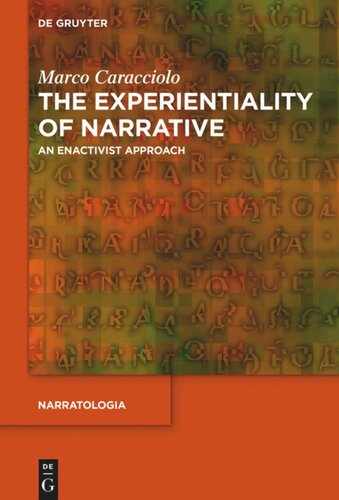

Most ebook files are in PDF format, so you can easily read them using various software such as Foxit Reader or directly on the Google Chrome browser.
Some ebook files are released by publishers in other formats such as .awz, .mobi, .epub, .fb2, etc. You may need to install specific software to read these formats on mobile/PC, such as Calibre.
Please read the tutorial at this link: https://ebookbell.com/faq
We offer FREE conversion to the popular formats you request; however, this may take some time. Therefore, right after payment, please email us, and we will try to provide the service as quickly as possible.
For some exceptional file formats or broken links (if any), please refrain from opening any disputes. Instead, email us first, and we will try to assist within a maximum of 6 hours.
EbookBell Team

5.0
100 reviewsRecent developments in cognitive narrative theory have called attention to readers' active participation in making sense of narrative. However, while most psychologically inspired models address interpreters' subpersonal (i.e., unconscious) responses, the experiential level of their engagement with narrative remains relatively undertheorized. Building on theories of experience and embodiment within today's "second-generation" cognitive science, and opening a dialogue with so-called "enactivist" philosophy, this book sets out to explore how narrative experiences arise from the interaction between textual cues and readers' past experiences. Caracciolo's study offers a phenomenologically inspired account of narrative, spanning a wide gamut of responses such as the embodied dynamic of imagining a fictional world, empathetic perspective-taking in relating to characters, and "higher-order" evaluations and interpretations. Only by placing a premium on how such modes of engagement are intertwined in experience, Caracciolo argues, can we do justice to narrative's psychological and existential impact on our lives. These insights are illustrated through close readings of literary texts ranging from Émile Zola's Germinal to José Saramago's Blindness.